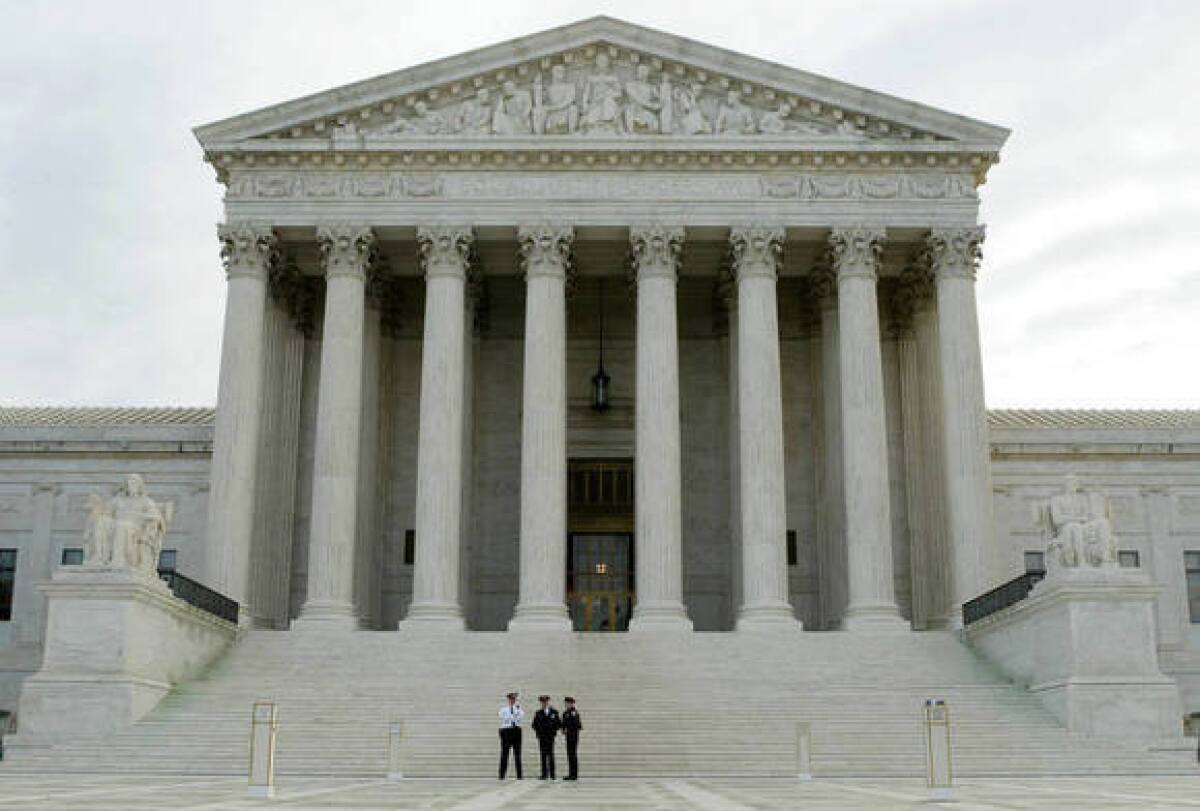Opinion: Five things about the Supreme Court we need to hear from the Democratic debates

- Share via
In a few hours, about half of the horde of Democrats seeking the party’s 2020 presidential nomination will converge on a stage in Detroit for the first of two televised debates this week. The candidates in both sessions are likely to be questioned about “Medicare for all” and its permutations, racism, trade, President’s Trump’s tweets, and maybe even foreign policy.
I hope they’re also asked about the Supreme Court.
Conventional wisdom is that the court hasn’t been a dominant issue in a presidential campaign since 1968. That’s the campaign in which Richard M. Nixon railed against the Warren Court and other federal courts for “weakening the peace forces as against the criminal forces in this country.”
But lately the court has loomed large in the public imagination, thanks in part to its role in scrutinizing Trump administration policies such as the travel ban and the failed attempt to add a citizenship question to the census. The sexual assault allegations that emerged during Brett M. Kavanaugh’s nomination also raised the profile of court appointments as an issue.
A poll conducted for the Pew Research Center before the 2018 midterm elections found that 76% of registered voters said that Supreme Court appointments were “very important” to their vote. Presumably the issue will be even more important to them in a presidential contest.
So here are a few court-related questions for the candidates:
1) Do you believe that Supreme Court justices, and other federal judges, are (or should be) definable largely by the party of the president who nominates them? Last year, Chief Justice John G. Roberts Jr., responding to criticism by President Trump of an “Obama judge,” said, “We do not have Obama judges or Trump judges, Bush judges or Clinton judges.” Was Roberts being accurate or disingenuous?
2) After retired Justice John Paul Stevens died this month, many appreciations noted that Stevens, who became the leader of the court’s liberal wing, was an appointee of a Republican president, Gerald Ford, who focused in making his selection more on credentials than on ideology. Is that how you would go about choosing justices, or do you believe that causes important to the Democratic base — abortion rights, for example — demand that you impose one or more litmus tests?
3) Even before Senate Majority Leader Mitch McConnell blocked a vote on Merrick Garland, President Obama’s nominee to replace the late Antonin Scalia, Supreme Court confirmations had become partisan exercises, with many senators reflexively opposing even well-qualified nominees from presidents of the other party. Some argue that the process must be depoliticized — perhaps by restoring the filibuster for Supreme Court appointments. Do you agree, or is it more important to install the right sort of justices even if they receive only a bare majority of votes in the Senate?
4) Some of you have discussed expanding the size of the Supreme Court and/or ending lifetime appointments for justices. Why are these good — or bad — ideas?
5) Finally, does the Supreme Court have too much power? Have Democrats and progressives placed too much emphasis on achieving policy goals through judicial rulings rather than by the political process? Is that a wise strategy when the court is likely to have a conservative majority for the foreseeable future?
More to Read
A cure for the common opinion
Get thought-provoking perspectives with our weekly newsletter.
You may occasionally receive promotional content from the Los Angeles Times.











